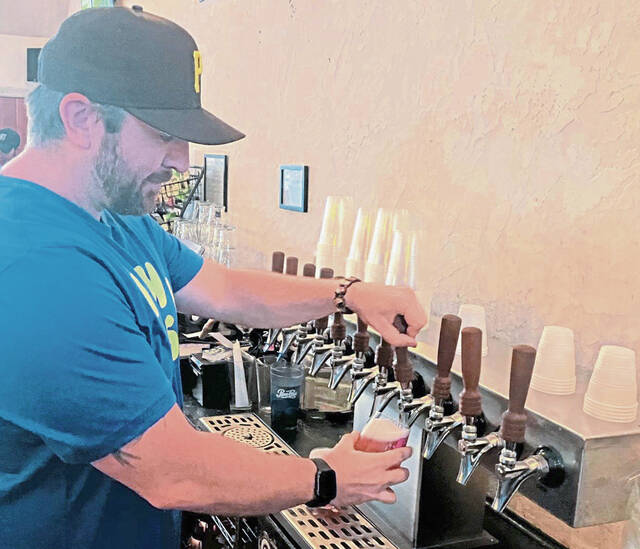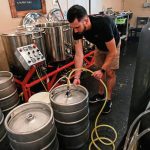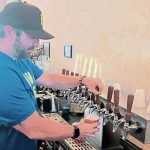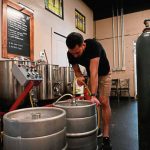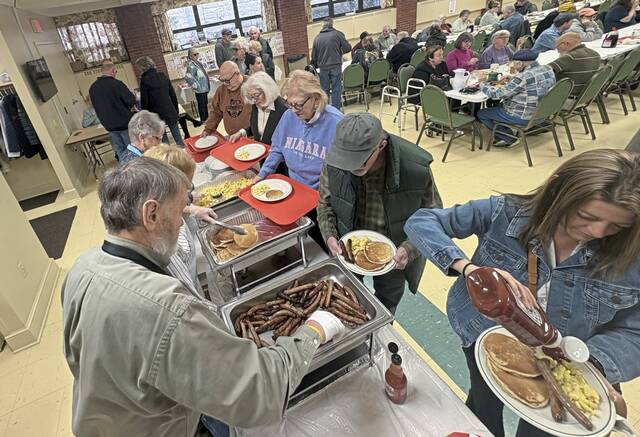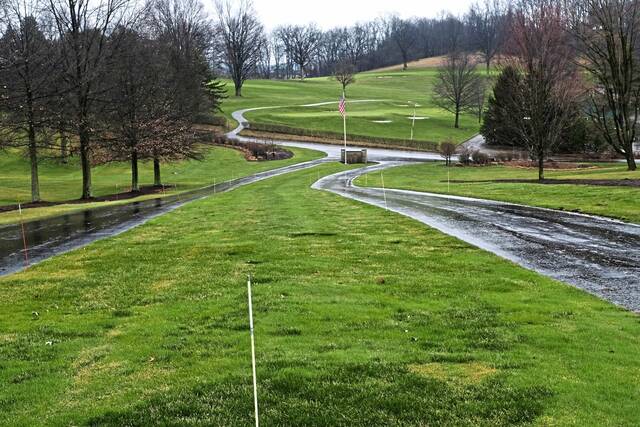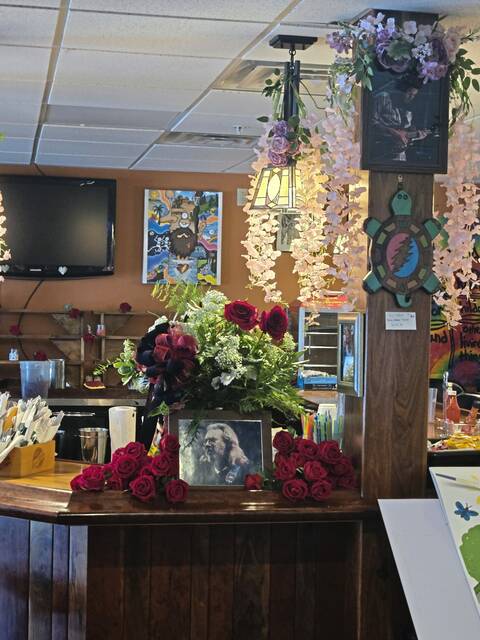Another craft brewer has opened a tap room in Greensburg, the fifth to be selling its own beer within a mile of the Westmoreland County Courthouse.
Jeremy and Jennifer Shearer opened their Stone Bridge Brewing Co. tap room at 239 E. Pittsburgh St. this week, during a time when craft beer production in Pennsylvania dipped in 2022, according to statistics compiled by the Brewers Association, a Boulder, Colo.-based nonprofit representing more than 5,600 small and independent U.S. brewers.
The state’s 531 craft brewers — second-highest number in the nation — produced 3.12 million barrels in 2022, a decrease of about 118,000 barrels from 2021, according to the association. The industry poured $5.36 billion into the state economy in 2021, a $200,000 drop from 2020.
Although Pennsylvania remains No. 2 in the nation in terms of craft beer production, it is yet to rebound from the covid-impacted production of 3.24 million barrels in 2020 and a long way from the state’s high production point of 3.9 million barrels in 2016, according to the trade group’s statistics.
While a steady crowd of patrons were sampling Stone Bridge’s brews Thursday at its “soft opening,” the Johnstown brewer is stepping into a community that is already overflowing with craft beer outlets: Yellow Bridge Brewing Co. on East Pittsburgh Street; Invisible Man Brewing on South Pennsylvania Avenue and El Diablo Brewing Co. & Wood-fired Kitchen and All Saints Brewing Co., both along Route 119.
“From our experience, more tap rooms and more breweries are a good thing. People love to sample (different) craft beers,” said Jeremy Shearer, co-owner of Stone Bridge with his wife, Jennifer. Not only are more breweries better, but they have a lot of customers from the Greensburg area who made the drive to Johnstown to enjoy their beer at the only brewery in that city, he said.
Shearer, who opened the Johnstown brewery in 2018 and transports his product to Greensburg, believes that the drop in output could be attributed in part to the lingering impact from covid shutdowns of 2020. His long-range plans for the building, which most recently housed a hardware store that closed in 2020, is to install a kitchen and have a pilot brewery operation.
“It’s the industry right-sizing … just evening out,” said Shearer, who named the brewery after a famous railroad bridge in Johnstown. The Stone Bridge was said to have held back 100,000 tons of debris from the floodwaters of the South Fork dam in the devastating Johnstown Flood of May 31, 1889.
Beer historian Richard Wagner agreed that the drop in craft beer production is linked to the covid shutdowns of restaurants and brewpubs in 2020. Business models that relied upon customers coming into a taproom — eating and drinking the beer made there — were hit hard.
“A lot of people lost their businesses. Some of the breweries had overextended themselves,” said Wagner, of Montgomery County.
Pennsylvania’s craft beer industry was not unusual in experiencing flat growth, because it mirrored the rest of the nation, said Chadd Balbi and Matt Kozar, co-founders of Breweries in PA, an online media company covering the industry in the state. One of the biggest reasons for stagnant growth was the cost of raw products to make the beer — grain, wheat and hops — cost more last year than two years ago, they said.
“The other primary reason would be increased competition,” the pair said.
Operators of other craft breweries in the Greensburg area were upbeat about the future of the industry.
The increased competition “brings more craft drinkers in,” said Jeff Guidos, owner of All Saints Brewing, which opened in 2011.
Ray Flowers, co-owner of El Diablo Brewing, which opened in October 2021, believe that increased competition won’t hurt the existing craft beer breweries in the area.
Customers are “going for quality over quantity,” and drinking on the lighter side of the various craft beers, said Flowers, whose previously worked at the former Red Star Brewery that closed at the Greensburg Train Station 13 years ago.
To succeed in a competitive environment, craft brewers have to be aware of the trends in the industry and adjust, said Sean McLaughlin, owner of Invisible Man Brewing, which opened in 2019 and offers 10 selections.
“You have to be cognizant of what is happening,” McLaughlin said. While the IPAs — India Pale Ale — had been popular, now the trend is people are drinking more sours and a lot of Pilsner-style beer, he said.
Despite some of the headwinds the craft beer industry faces, Wagner said the popularity of craft beer still “is exploding” and there are more breweries in the nation than ever before.
McLaughlin is optimistic about the future.
“Production (at Invisible Man Brewing) has increased as the (Greensburg) community becomes more open to craft beer and craft breweries,” McLaughlin said. “The city is growing and there is lot of energy. Breweries are looking at Greensburg as a new place to start a second brewery or tap room.”




